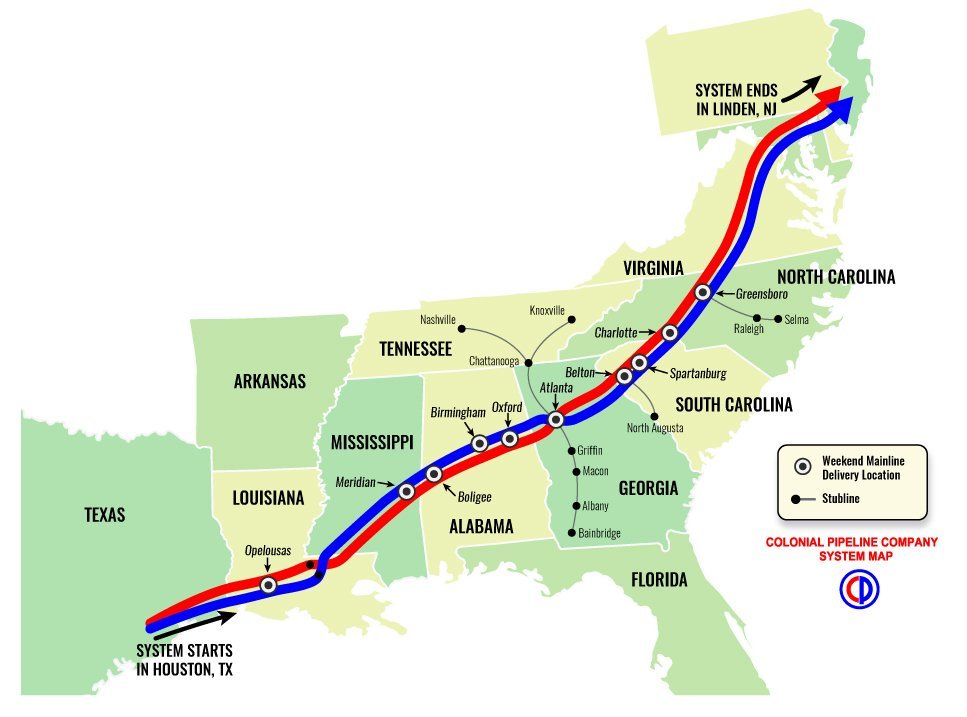
Colonial Pipeline Co. has delayed until Sunday the expected restart of the largest U.S. fuel pipeline, which was shut earlier this week by an explosion and fire in Alabama.
Colonial aims to restore service on the main gasoline pipeline, known as Line 1, Sunday afternoon, one day later than originally expected, it said in an online statement. The company earlier said work crews made “substantial progress” Wednesday night to facilitate removing product from a portion of the 1.3 million-barrel-a-day line, which will allow them to extinguish a fire that’s burned since the blast Monday. After all fuel is removed, the damaged section will be replaced with a 36-inch-diameter pipe as a permanent repair.
“Colonial’s team on-site is constantly reassessing our timeline for restoration of service on Line 1,” the company said in the statement on its website at 11:30 p.m. New York time on Thursday.
Gasoline futures on the New York Mercantile Exchange on Friday traded down 0.4 percent at $1.4184 a gallon as of 12:38 p.m. in Singapore, extending losses after closing Thursday at a one-month low. Prices have pared gains since jumping the most in almost eight years after trading reopened following the blast.
The blast took out service on one line of a system that brings gasoline, jet fuel and diesel more than 5,000 miles from refineries in Houston to storage facilities near New York City. Colonial Pipeline, which is owned by a group that includes subsidiaries of Koch Industries Inc. and Royal Dutch Shell Plc, supplies about half of the refined products used on the East Coast. This week’s events followed a spill in September that left the line out of service for 12 days.
So far about 4 million barrels, or 168 million gallons, of gasoline have been shut in. The second line, which delivers diesel and sometimes crosses with Line 1, was closed for several hours this week. Colonial’s inspection of Line 2 showed no effect from the blast. Nationwide retail gasoline prices have risen 1.2 cents a gallon to $2.218 since Monday’s interruption on Colonial.
Watching Timeline
The pipeline makes shipments of gasoline in five-day cycles to Southeastern states that are otherwise cut off from access to refineries that produce motor fuel. A batch of regular conventional gasoline left Monday from Baton Rouge, Louisiana, according to a Colonial shipping schedule.
Supplies to markets in Alabama, Tennessee, Georgia, the Carolinas and Virginia are at risk when this line goes down, said Andy Milton, senior vice president of supply and distribution at Mansfield Oil Co., a fuel supplier based in Gainesville, Georgia.